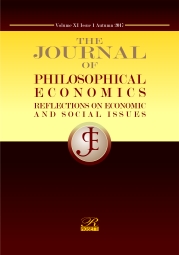Complexity and the culture of economics: a sociological and inter-disciplinary analysis
Complexity and the culture of economics: a sociological and inter-disciplinary analysis
Author(s): Hendrik Van den BergSubject(s): Philosophy, Social Sciences, Economy, Special Branches of Philosophy, Sociology, Philosophy of Science, Social Theory, Socio-Economic Research
Published by: Editura Rosetti International
Keywords: culture; neoclassical economics; orthodoxy; pluralism; sociology;
Summary/Abstract: This paper offers a sociological explanation for why the field of economics has so severely restricted the scope of its analysis to the point where it failed to foresee the financial crises, economic recessions, and other large shifts in economic activity that have characterized the global economy in recent decades. This paper’s analysis of the culture of economics draws heavily on the work of Pierre Bourdieu, the French sociologist who developed a useful framework with which to analyze the culture of an intellectual field like economics. Specifically, the paper describes how the neo-liberal doxa supports the restrictive neoclassical (marginalist) modeling approach that is a central element of the habitus of mainstream economics. Bourdieu’s concept of symbolic violence shows how the orthodox economics culture perpetuates itself even in the face of the complete failure of the culture’s favored neoclassical and rational expectations models to anticipate recent macroeconomic crises. The paper concludes with some thoughts on how this understanding of the culture of economics can enable economists to free themselves from the oppressive culture of mainstream economics.
Journal: Journal of Philosophical Economics
- Issue Year: V/2012
- Issue No: 2
- Page Range: 38-63
- Page Count: 26
- Language: English

